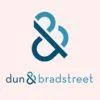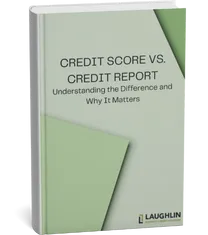
The Difference Between Business Credit Scores from Experian, Equifax & D&B
When it comes to evaluating your business’s creditworthiness, not all credit scores are created equal. Experian, Equifax, and Dun & Bradstreet (D&B) are the three major credit bureaus that provide business credit scores—but they each use different models, data sources, and scoring ranges. Understanding these differences is crucial for securing funding, building business
credibility, and avoiding surprises during lender evaluations.
Dun & Bradstreet (D&B): PAYDEX Score
Score Range: 0–100
Primary Focus: Payment history with vendors and suppliers
How It’s Calculated: Based on how promptly your business pays its bills. A score of 80+ indicates prompt payments.
Key Report: D&B’s PAYDEX is only generated if you have a D-U-N-S Number and have at least four tradelines reporting.
What Makes D&B Unique?
It’s vendor-driven. Building your score often means working with vendors that report payments to D&B. Many lenders and suppliers look here first to gauge your business’s reliability.

Experian Business Credit Score
Score Range: 1–100
Primary Focus: Payment behavior, public records (like liens, judgments), company background, and credit utilization
How It’s Calculated: A blend of tradeline activity, public filings, and credit inquiries. Scores above 76 are considered low risk.
What Makes Experian Unique?
Experian’s data is broad and includes information from both suppliers and financial institutions.
Their scoring model also considers the size and industry of your business.

Equifax Business Credit Risk Score
Score Range: 101–992 (Credit Risk Score)
Additional Score: Payment Index (0–100)
Primary Focus: Delinquency risk and how your business compares to others in your industry.
How It’s Calculated: Based on public records, credit history, financial transactions, and demographic data.
What Makes Equifax Unique?
Equifax provides industry-based risk scoring and includes utility and telecom payment data.
Their scores are often used in underwriting processes by banks and lenders.

Why This Matters
Each bureau’s score influences different decision-makers. Some lenders might rely on Experian, while vendors may pull D&B. Understanding how to build and monitor all three canincrease your approval odds for loans, credit lines, and vendor accounts.
How to Improve Your Business Credit Across All Bureaus
Register for a D-U-N-S Number and work with vendors that report to D&B.
Open and responsibly manage tradelines that report to Experian and Equifax.
Keep your public records clean (avoid liens and judgments).
Pay bills early or on time.
Monitor your credit reports regularly for errors or outdated data.
Want to learn how to build a strong credit profile across all three bureaus?
Book your FREE business credit consultation today.
Leave a Comment
Comments:




©2025 Laughlin Business Credit Advisor, all rights reserved. No reproduction or use of any portion of the content or work, or the entire work, is permitted without the express written permission and authorization of the publisher. However, the publisher of these materials routinely grants authorization for reproduction or use of this work, in whole or in part. If you would like to use any portion of this material in a book, article, e-zine, newsletter, radio or television broadcast, podcast, or in any other seminar, teleconference, or other events or publications, please email or call Laughlin Business Credit Advisor.
Stay inspired, informed, and ahead – fill out the form to join us now!
Dive into our library and unlock a treasure trove of business insights that can transform your journey to success.
Laughlin Business Credit Advisors
680 W. Nye Ln, Ste #201Carson City, NV 89703
All Rights Reserved,
© 2024 Great Basin Holdings, Inc.









